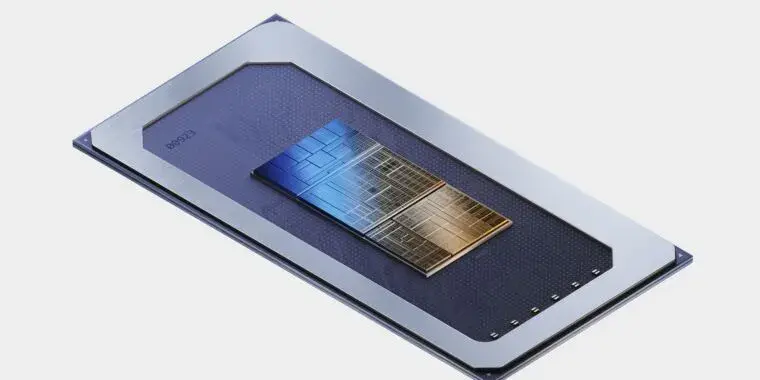lol it’s already out there on tens of millions of laptops, but I guess hubris is the way to go
Bollocks! 64k RAM is enough for anything!
A more recent example:
“Nobody needs more than 4 cores for personal use!”
I don’t know who said this, but my bet would be Intel. Without AMD, we would probably still stuck on 4 cores.
Yep it’s Intel.
They said it up until their competitor started offering more than 4 cores as a standard.
The problem with ARM laptops is all of the x86 windows software that will never get ARM support and all of the users that will complain about poor performance if an emulator is used to run the x86 software.
Most Linux software already supports ARM natively. I would love to have an ARM laptop as long as it has a decent GPU with good open source drivers. It would need full OpenGL and Vulkan support and not that OpenGL ES crap though.
Windows as always turn out to be the main villain.
Windows has nothing to do with it. They are talking about software applications that were made for x86. Stuff like Adobe CC, etc.
Windows runs on ARM (and has for a decade) and the apps available in the Windows app store run on ARM.
Apple has shown that the market could be willing to adapt.
But then again, they’ve always had more leverage than the Wintel-crowd.
But what people seem to ignore is that there is another option as well: hardware emulation.
IIRC correctly old AMD CPU’s, notably the K6, was actually a RISC core with a translation layer turning X86 instructions into the necessary chain of RISC instructions.
That could also be a potential approach to swapping outright. If 80% of your code runs natively and then 20% passes this hardware layer where the energy loss is bigger than the performance loss you might have a compelling product.
Apple has shown that the market could be willing to adapt.
It’s less that they’ll adapt, and more that they don’t really care. And particularly in the case of Apple users: their apps are (mostly) available on their Macs already. The vast majority of people couldn’t tell you what architecture their computer runs on and will just happily use whatever works and doesn’t cost them the earth.
Except software applications like Adobe CC have supported ARM for nearly 5 years now. As do most software because mobile exists (and mobile is exclusively ARM) and these days, apps need to cover desktop and mobile and web. ARM has essentially been forced on everyone because of mobile. Whether they like it or not, ARM is here to stay.
But none of this is a technical limitation. It’s a political one. Companies like MS don’t care about the technology, they just care about moving in a way that gives them control so they can maintain and expand their monopoly through licensing and other restrictions.
And if it wasn’t for these meddling gnu followers it would have gotten away with it too.
Microsoft is actually pushing Windows on ARM right now, since their exclusivity deal with Qualcom expired. This is going to get interesting.
Modern ARM GPUs already support OpenGL and Vulkan, that’s not a problem. Just some platforms chose to go mobile APIs due to running Android.
The trick with emulation that Apple did was to add custom instructions to the CPU that are used by the emulation layer to efficiently run x86_64 code. Nothing is stopping other CPU manufacturers from doing the same, the only issue is that they have to collaborate with the emulation developer.
The driver situation is less than ideal. Mesa got support for Mali but that’s not the only GPU that comes with ARM chips and you get bonkers situations. E.g. with my rk3399-based NanoPC, a couple of years ago (haven’t checked in a while and yes it’s a Mali) rockchip’s blob supported vulkan for android but only gles for linux as rockchip never paid ARM the licensing fees for that.
And honestly ARM is on the way down: Chip producers are antsy about the whole Qualcomm thing and Qualcomm itself is definitely moving away from ARM, as such my bets for the long and even mid-term are firmly on RISC-V. Still lack desktop performance but with mobile players getting into the game laptops aren’t far off.
I love my ARMed Mac because battery life. I almost never use the power cable outside.
And it’s really responsive even on battery. It’s actually a little bad because I can have too many windows open and can’t find anything.
MacOS doesn’t throttle performance on battery like many Windows power plans do, that’s why
MacOS doesn’t need to throttle performance because ARM and other RISC architectures are naturally very power efficient
They didn’t do it on x86 either I believe.
Well those Intel CPUs used to thermal throttle anyway in their outlandishly inadequate cooling designs so they did not need to throttle power either way. Now they could throttle power but don’t have to
deleted by creator
If only I could get wifi to work on a linux partition, it would be the perfect linux machine.
The wifi worked fine for me on Fedora Asahi, macbook air m2.
Maybe you can buy a USB-C Wifi interface that’s small enough. Assuming there’s something like that.
This sounds very familiar to when Steve Ballmer wasn’t worried about the iPhone at all.
Or when Kodak didn’t worry about digital cameras
Well they should be afraid. I want a ARM Linux laptop as well. Or even better RISC-V! Yes plz… THE WORLD NEED RISC-V, Yesterday.
I wish the Pinebook Pro was updated cause I’d give that a shot. Or better, an ARM powered Framework laptop
I replaced my old Intel Core i7 HP ProLiant server with an Odroid M1 (ARM Based) and it consumes 2 watts compared to 72 that the Intel Server did.
The only thing I can’t do with it is my Minecraft server, it runs all else perfectly. Even the Lemmy instance of this account is powered by the same server! And what’s more it basically runs for free, as solar generates enough power for the server to consume, even when it’s cloudy.
Yes, I believe Intel should be afraid.
Impressive!
I run my lemmy instance on a pine64 quartz64 which uses an rk3566. It runs really well and power consumption is totally negligible. Didn’t notice any increase in my power bill since it’s been running.
Nice, cool to see more people have an arm Lemmy instance
I hope Risc-V will make it. Even though idk? But it literally has no weird proprietary shit like ARM and it actually makes sense.
Going away from x86_64 is important, even for the environment
Much like the open source movement before it, the open hardware movement will have a slow crawl to a bare victory.
It’ll first be used a lot by labs, embedded applications and general infrastructure, far away from the consumer space with only a little bit of overlap.
Then, hopefully, some new Apple-like company manages to slam dunk their presentation and introduction to market, effectively disrupting the market - in a good way.
Follow me for more hopeful divining. We’ll have the shaking of sticks, a dead goat boy and symbols written in the floor.
Bring candles.
Whats also awesome is, that SiFives devices run Coreboot out of the box.
I own a Thinkpad T430 and soon a Clevo NV41 and both are also Coreboot compatible. Most excited about the new hardware, even though it will need a fully blobbed Coreboot… SiFive on the other hand is probably fully FOSS?? This is crazy!
Sad news about SiFive lately :/ all but the founding members got cut. We’ll see where that goes…
But yes, RISC-V getting better and more performant is a net gain. I’m thinking that open firmware will be the future battleground of liberation movements.
“Listen, you can’t have open firmware, because manufacturers want to give you secret sauce security, and also authorities need to catch terrorists and pedophiles… see, they are evil and-” sush… let me have my long lasting, open firmware system. I want it, I want it NAO!!
My hopes for RISC V are higher than I like to admit.
I really hope it goes mainstream and gives us ARM benefits with the open nature awesomeness
I think I remember Intel saying that 64 bit on the desktop was not needed. They are great at making meaningless predictions it seems.
My m1 MacBook Air is hands down the most incredible laptop I’ve ever owned. I’ve had it for 3ish years now and it just doesn’t fucking stop. Battery life is still amazing and runs just as fast as it did day 1.
I’ve NEVER had that experience with any Intel/PC laptop, ever. Honestly I’m never going back.
deleted by creator
Intel is in denial.
Denial inside.
My hope, no… dream, is that we get both ARM and x86 compatible chips on the same motherboard one day. Off course the operating system needs to support dual architectures. Then they could run ARM binaries directly without any major compatibility or performance hit, without the need for recompilation.
A man can only hope. Is this something that could happen? Technically it should be possible, but realistically, probably not.
But then you end up with the downsides of having both and none of the upsides? Wouldn’t that incur an enormous effort on the software side to make it all possible, so you could run a less efficient chip in the end (practically two instead of one)
Having compatibility to legacy software is a pretty upside. Either you use an application that runs power efficient, maybe the entire operating system uses the power efficient ARM at default and then for compatibility or for faster calculation (games?) the x86 cores could be used. Intel already does two different kind of cores, performance and efficiency cores. And smartphones have something similar too. I imagine this would be expensive and it is not for everyone. And who knows what other cutbacks and drawbacks it would require.
I think thats a pretty unmotivated approach. Imagine every invention replacing previous ones, just getting piled on top of each others?
deleted by creator
Intel planning to abuse its quasi-monopoly to stifle competition and innovation? They wouldn’t dare, would they? /s
🤖 I’m a bot that provides automatic summaries for articles:
Click here to see the summary
But Intel CEO Pat Gelsinger doesn’t seem worried about it yet, as he said on the company’s most recent earnings call (via Seeking Alpha).
“Arm and Windows client alternatives, generally, they’ve been relegated to pretty insignificant roles in the PC business,” said Gelsinger.
Ideally, Arm-based PCs promise performance on par with x86 chips from Intel and AMD, but with dramatically better power efficiency that allows for long-lasting battery life and fanless PC designs.
Qualcomm’s latest Snapdragon chip for PCs, the 8cx Gen 3 (also called the Microsoft SQ3), appears in two consumer Windows devices.
Even if Gelsinger is wrong, he’s trying to spin the rise of Arm PCs as a potentially positive thing, saying that Intel would be happy to manufacture these chips for its competitors.
Right now, TSMC has an effective monopoly on cutting-edge chip manufacturing, making high-end silicon for Qualcomm, Nvidia, AMD, Apple, and (tellingly) Intel itself.
Saved 71% of original text.
Not if they still suck ass
I don’t understand the comments in this thread, why would anyone want their laptops to act like their mobile devices? They have less privacy and they’re harder to control. Am I missing something?
What you are talking about is the operating system, not the cpu.
The ARM architecture allows much more performance for less power when compared to AMD64, because it runs simpler instructions.
The change to ARM chips on laptops will not make them work like phones, with the exception of much better standby.
I’m obviously not techy, but when I was looking for a tablet, I was told I want a laptop or a 2 in 1 and I didn’t want the ARM architecture because that’s like mobile. I got a 2 in 1 tablet and they were right that I love it, so that’s why I was asking.


















